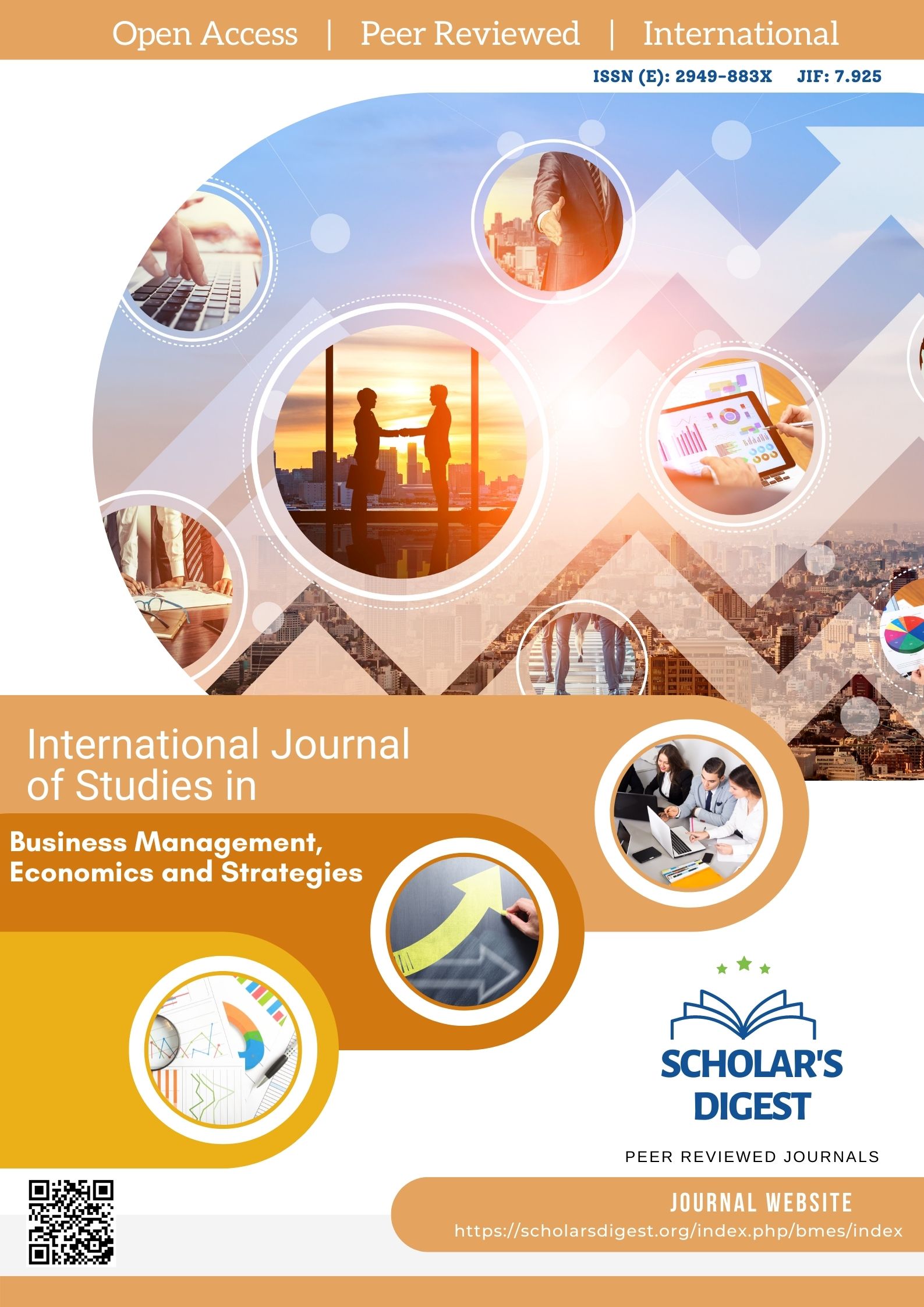THE INFLUENCE OF STRATEGIC MERGER ON POST-CHANGE THROUGH THE MEDIATING ROLE OF PHENOLOGICAL CONTEXT: A DUAL STAGE STRUCTURAL EQUATION MODELING AND NEURAL NETWORK APPROACH
Keywords:
Strategic merger, post-change consequences, psychological context.Abstract
Companies pursue to increase the percentage of acquisitions in different parts of the world by expanding operations. Many companies are adopting strategic merger in order to expand influence. However, most strategic change programs fail to achieve their objectives. Thus, this study aims to investigate the reactions of individuals after strategic merger, through the mediating role of the psychological context. It was necessary to identify the most prominent post-change behaviors. Therefore, the study addressed this gap by investigating the outcomes of the strategic merger. Data for this study were collected from 30 family businesses, and accordingly, 341 questionnaires were collected with an overall response rate of 64%. The structural equation modeling approach and the nonlinear relationships approach were adopted by implementing WarpPLS software. The results confirm that there is a clear impact of strategic merger on the behavior of individuals because of the change at the hierarchical level and the process of distributing roles. Further, policymakers in organizations must pay attention to the possible reactions of individuals towards the internal and external policy of the organization. In addition, individual incentives, anxiety, and individual mobbing mediate the relationship between strategic merger and post-change. This study has presented theoretical and practical implications that are critical guidelines for practitioners and academics in mitigating the negative consequences of post-change toward strategic merger.








